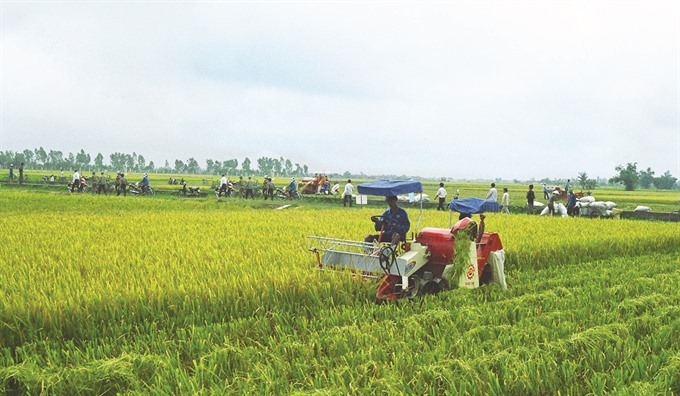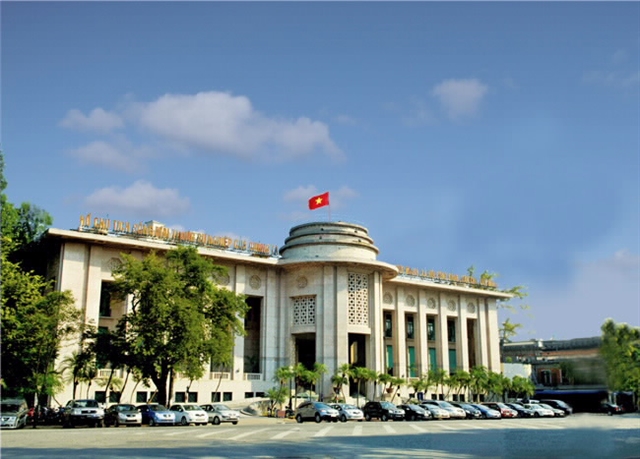 Economy
Economy

Việt Nam wants to enhance co-operation with international organisations to promote the development of agricultural co-operatives, especially in supporting market access and management capacity, participants said at a seminar in HCM City on Monday.
 |
| Việt Nam wants to enhance co-operation with international organisations to promote the development of agricultural co-operatives, especially in supporting market access and management capacity. — Photo tapchithue.com.vn |
HCM CITY — Việt Nam wants to enhance co-operation with international organisations to promote the development of agricultural co-operatives, especially in supporting market access and management capacity, participants said at a seminar in HCM City on Monday.
Đặng Văn Thanh, vice director of Co-operative Development Department under the Ministry of Planning and Investment, said Việt Nam’s legal framework for co-operative development had contributed to increasing the number of co-operatives and their improvement in scale, technology and markets.
As of the end of last year, the country had 19,569 co-operatives with more than 6.25 million members. Of these, 10,726 were agricultural co-operatives.
But agricultural co-operatives are facing difficulties, including a shortage of capital, lack of consultancy from staff and post-harvest preservation systems, and weak linkages among farmers, co-operatives and enterprises.
There was also limited management capacity among co-operatives’ leaders, according to Thanh.
Most of the co-operatives supply inputs to household farmers’ production, and only 12 per cent of co-operatives were active in processing and consumption of farm produce, while many operate moderately, which has not brought about practical benefits for members. Some are on the verge of dissolution.
Trần Thanh Nam, the Deputy Minister of Agriculture and Rural Development, said that agricultural co-operatives needed to learn from local and international experience to enable them to improve their performance and build new co-operative models to serve their members better and help them face challenges in the market.
In the past, Vietnamese and international organisations have had good co-operation in developing agricultural co-operatives, he said.
Through the seminar, the ministry wanted to provide international organisations with more information about agricultural co-operative development in Việt Nam and at the same time to enhance co-operation with them, he said.
JongHa Bae, representative of the Food and Agriculture Organisation in Việt Nam, said: “Việt Nam agriculture has demonstrated remarkable growth in terms of production in the last three decades, but farmers’ income is still low. So right now, we should focus more on how to improve farmers’ livelihood.”
Co-operatives provide an opportunity for small-scale farmers to improve their productivity, add value to their produce, and increase their access to national and international markets, Bae said.
Nguyễn Ngọc bảo, President of Việt Nam Co-operative Alliance (VCA), proposed that the ILO, FAO, UNDP, JICA and other international organisations sponsor advise the VCA to improve its communication capacity, modernise its information system, its investment and trade promotion centre, and train human resources in the co-operative sector and others.
“The importance of co-operatives is especially significant in the context of restructuring of agriculture and new rural construction,” Lê Đức Thịnh, vice director of Department of Co-operative Economics and Rural Development, said.
The country targets having 20,000 agricultural co-operatives by 2020, of which 15,000 operate efficiently.
About 50-60 per cent of farmer households are members of agricultural co-operatives, with at least 1,000 safe agricultural product chains by then.
He also listed eight priority missions in agricultural co-operative development, including raising awareness of the role, effective model of co-operatives, improving policies for agricultural co-operative development, and providing training and capacity building.
Promoting linkages in the value chain, transferring science technology, and strengthening capacity of financial management and capital mobilisation are also considered important.
The sector wants to co-operate with international organisations to promote the development of agricultural co-operatives, according to Thịnh.
At the event, a memorandum of understanding was signed to form the Network of Agricultural Co-operative Development Partners (NETCOOP) to promote the development of agricultural co-operatives, sustainable economic growth and the prosperity of the agricultural sector in Việt Nam.
The main partners in NETCOOP are: Ministry of Agriculture and Rural Development, Ministry of Planning and Investment, the VCA, the School of Management for Agriculture and Rural Development, the Department of Co-operative Economics and Rural Development, the Institute of Policy and Strategy for Agriculture and Rural Development, FAO, the German Agency for Development Co-operation (GIZ) and Canadian Co-operation Society for International Development (Socodevi), together with many other Vietnamese and international organsiations.
The seminar was organised by MARD, GIZ and Bayer Việt Nam in the framework of the Better Rice Initiative Asia. — VNS




